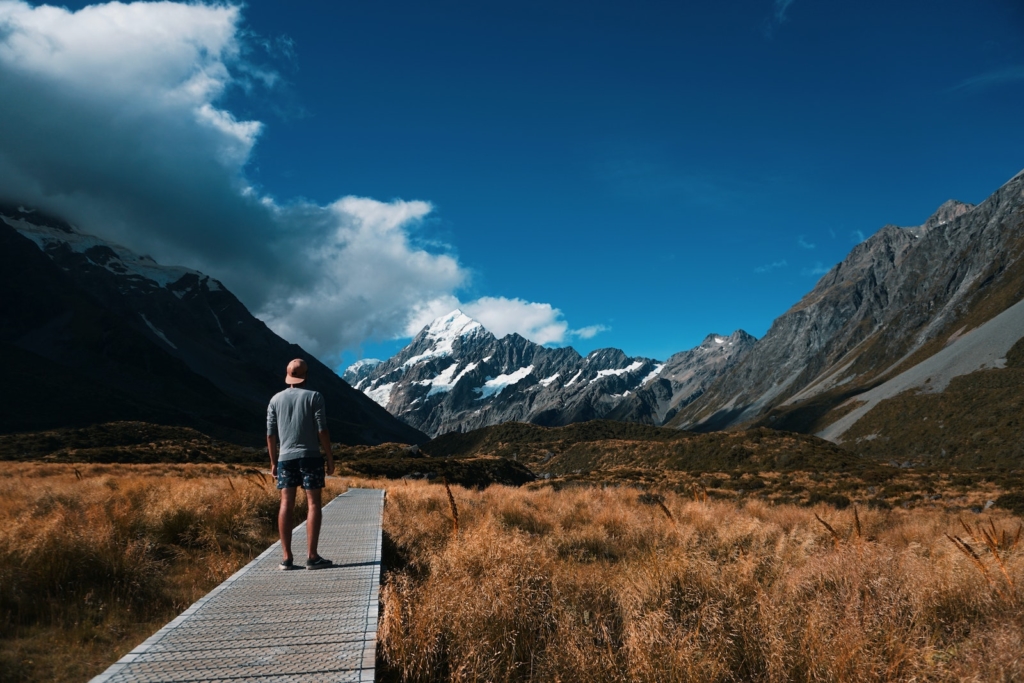Planning a trip to Australia and New Zealand? It's essential to know the entry formalities for these two destinations. For French citizens, an electronic visa (NZeTA for New Zealand and eVisitor for Australia) is required.
If you are passing through New Zealand on your way to another country and are not planning to stay, you are a transit passenger. As a transit passenger, you can only travel through Auckland International Airport, where you must remain in the airport's transit zone or on board your aircraft. Normally, you must spend less than 24 hours in transit in New Zealand, without baggage reclaim (otherwise, the standard NZeTA applies).
Only the following nationalities are exempt from NZeTA when transiting New Zealand: Bahamas, Bermuda, Bolivia, Colombia, Costa Rica, Ecuador, Federated States of Micronesia, Indonesia, Kiribati, Nauru, Palau, Panama, Papua New Guinea, Paraguay, Peru, Philippines, Republic of the Marshall Islands, Samoa, Solomon Islands, Thailand, Tonga, Tuvalu, Vanuatu, Venezuela.
What is NZeTA and why do you need it?
NZeTA (New Zealand Electronic Travel Authority) is an electronic travel authorization introduced by the New Zealand government to strengthen border security. It is compulsory for passport holders from over 60 visa-exempt countries, including France, Belgium and Switzerland. Travelers must obtain this authorization before departure to ensure trouble-free entry into New Zealand.
What are the requirements to qualify for NZeTA?
- Hold a passport valid for at least three months beyond the planned return date
- Do not intend to work or study in New Zealand
- Stay must not exceed 90 consecutive days (180 days for British citizens)
- Be in good health and pose no risk to the country's security
How do I obtain the NZeTA?
The NZeTA application process is simple and entirely online. Travelers must fill in a form with their personal information, such as name, date of birth, e-mail address, passport number and travel details. It is also necessary to answer a few questions about health and any criminal record.
Once the form has been submitted, it usually takes 72 hours to receive an e-mail response. Most applications are approved quickly, but some may require a more thorough examination. It is therefore advisable to apply at least 2 weeks before departure.
All you need to know about Australia's electronic visa (eVisitor)
To travel to Australia, French, Belgian and Swiss nationals need an electronic authorization called an eVisitor. This visa allows you to stay in Australia for up to three consecutive months for tourism or business purposes. Here's what you need to know about the conditions and procedure for obtaining an eVisitor.
What are the eVisitor eligibility criteria?
- Hold a passport valid for the entire duration of your stay
- Do not intend to work or study in Australia
- The stay must not exceed 90 consecutive days
- Be in good health and pose no risk to the country's security
How do I get an eVisitor?
The eVisitor application is also made online. Travelers must fill in a form with their personal information, such as name, date of birth, e-mail address, passport number and travel details. They must also answer a few questions about their state of health and any criminal record.
Once the form has been submitted, it usually takes a few days to receive an e-mail response. Most applications are approved quickly, but some may require a more thorough examination. It is therefore advisable to apply at least 2 weeks before departure, as for the NZeTA.

Practical tips for preparing your trip to Australia and New Zealand
Travelling to Australia and New Zealand requires good organization and taking into account certain important elements. Here are a few tips to help you prepare for your trip:
- Passport: check the validity of your passport and make sure there are enough blank pages for entry and exit stamps.
- Airline tickets: book your tickets in advance to take advantage of the best fares, and make sure you meet the entry requirements for each country.
- Accommodation: research accommodation options thoroughly and book in advance to avoid unpleasant surprises.
- Health: consult your doctor before departure to check whether you need any specific vaccinations or medication. You should also take out travel insurance to cover medical expenses abroad.
- Money: find out about the local currency and means of payment accepted in each country (credit card, cash, etc.).
- Climate: find out what the weather is likely to be like during your stay, and pack accordingly (warm clothing, waterproofs, sun protection, etc.).



![[White paper] Travel formalities by Visamundi and Siècle Digital](https://www.visamundi.co/wp-content/uploads/2023/05/logo-horizontal-dark-300x51.png)
